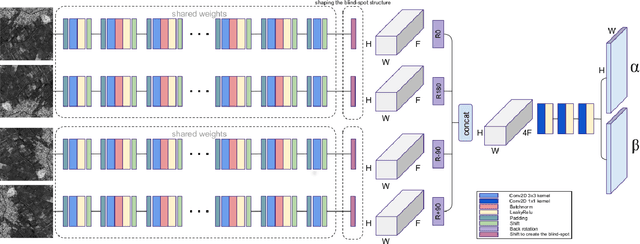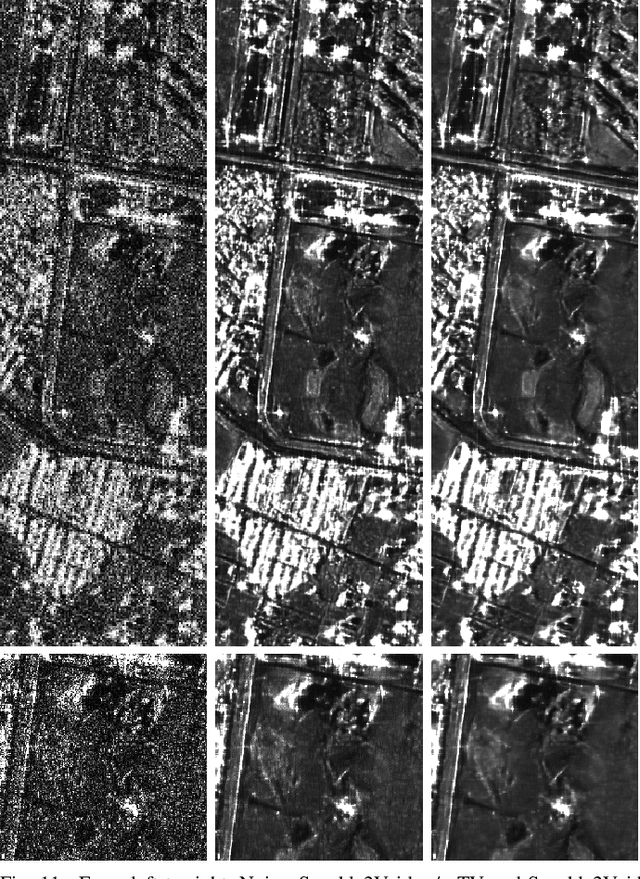Speckle2Void: Deep Self-Supervised SAR Despeckling with Blind-Spot Convolutional Neural Networks
Paper and Code
Jul 04, 2020



Information extraction from synthetic aperture radar (SAR) images is heavily impaired by speckle noise, hence despeckling is a crucial preliminary step in scene analysis algorithms. The recent success of deep learning envisions a new generation of despeckling techniques that could outperform classical model-based methods. However, current deep learning approaches to despeckling require supervision for training, whereas clean SAR images are impossible to obtain. In the literature, this issue is tackled by resorting to either synthetically speckled optical images, which exhibit different properties with respect to true SAR images, or multi-temporal SAR images, which are difficult to acquire or fuse accurately. In this paper, inspired by recent works on blind-spot denoising networks, we propose a self-supervised Bayesian despeckling method. The proposed method is trained employing only noisy SAR images and can therefore learn features of real SAR images rather than synthetic data. Experiments show that the performance of the proposed approach is very close to the supervised training approach on synthetic data and superior on real data in both quantitative and visual assessments.
 Add to Chrome
Add to Chrome Add to Firefox
Add to Firefox Add to Edge
Add to Edge